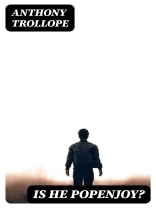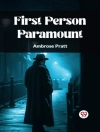In Anthony Trollope’s novel ‘Is He Popenjoy?’, the reader is introduced to a captivating story of family intrigue, social class distinctions, and the search for identity. Told with Trollope’s signature witty and satirical style, the novel explores the themes of inheritance, deception, and the complexities of human relationships. Set in Victorian England, the narrative unfolds with intricate plot twists and memorable characters, making it a classic example of 19th-century English literature. Trollope’s sharp observations of society and keen understanding of human nature shine through in this engaging tale. This novel is a must-read for those interested in exploring the nuances of Victorian literature and the social dynamics of the era. With its expert storytelling and compelling storyline, ‘Is He Popenjoy?’ is sure to leave a lasting impression on readers who appreciate intricate plots and well-developed characters.
लेखक के बारे में
Anthony Trollope (1815–1882) was an English novelist of the Victorian era, renowned for his keen observations of the social and political landscapes of his time. His prodigious output includes some of the most enduring works of 19th-century fiction, often characterized by their realistic portrayal of the day-to-day life of his characters, affording him a significant place in the English literary canon. Trollope’s background as a civil servant and extensive travels contributed to the authenticity of his narrative milieu, particularly within the clerical and political settings that frequent his novels. ‘Is He Popenjoy?’ (1878) is a work that encapsulates Trollope’s skill in dissecting class and societal norms, through the lens of a disputed inheritance and the resultant familial tensions. The novel stands among a prolific oeuvre that includes the acclaimed ‘Chronicles of Barsetshire’ and ‘The Palliser Novels’ series. Trollope’s literary style combines the minutiae of social life with sharp wit and an underlying empathy for his characters, making his work both a study of Victorian society and a commentary on human nature. His influence is evident in the works of later realist writers, who sought to emulate his in-depth exploration of characters and the social structures in which they operate.












